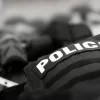Everyone has an opinion on Montgomery’s crime problem.
The “thugs” are out of control, they say. City leaders must do more, they say. That Black mayor needs to get his people under control, they say. The judges and cops need to stop coddling criminals and keep ‘em locked up, they say.
It will never be anything less than endlessly annoying listening to the very people who broke Montgomery, attempt to explain to those trying to fix it how they’re screwing up.
Here’s the reality that no one wants to talk about: Montgomery has been broken for years.
Murders increased fairly steadily under former Mayor Todd Strange. They increased under Bobby Bright and under Emory Folmar. All of them, along with current Mayor Steven Reed, experienced steady increases and random, sharp spikes.
Strange’s spike came in 2013, when the city had its highest number—50—in 33 years. Bright’s came in 2007. Reed’s came during the pandemic, when homicides spiked across the country. Following a relatively calm year in 2019, there were a staggering 68 homicides in Montgomery in 2020 and an even more staggering 77 in 2021. Those numbers have declined slightly the last two years.
So, there’s an underlying problem. It’s been festering and growing for decades now.
A child born in the 1990s/early 2000s in Montgomery went to school in one of the most segregated school systems in America. That child attended classes at traditional public schools that were missing peers from the city’s most financially stable families—they were in one of the local segregation academies—and also without their academically capable peers—they were in the illegally segregated magnet schools.
Many of those children were born into families that had suffered from extreme generational poverty, much of it borne out of Jim Crow laws and systemic discrimination and a regressive tax system. The rest was often due to various crimes and the well documented history of this state locking up and keeping locked up the state’s poorest citizens.
Those children’s classrooms were packed to the gills. I have witnessed firsthand classes with more than 40 students in them. Children sitting against walls because there weren’t enough desks. They shared books. And don’t even get me started on the lack of technology.
At the same time, city officials were slowly taking away all of the guardrails that might otherwise steer an at-risk kid down a productive path. They closed the local community centers, taking away neighborhood safe havens that provided a spot for kids to get tutoring, to play sports and to interact with authority figures, including cops. Neighborhood cops would routinely show up to the centers to play basketball with the kids.
On top of that, the city ended its support of middle school athletics programs, leading to drastic cuts of those programs and the layoff of coaches who had been essentially surrogate parents to many of the local kids. They drove them home after practice, made sure they got something to eat, kept them from hanging with the wrong crowd and dished out discipline when needed.
Poof, gone. Overnight.
At the same time all of that support was taken away, you know what was provided in staggering numbers?
Guns.
I’ll never forget going to report on a murder that happened in a Montgomery housing project one day. A lady there, in an effort to demonstrate the prevalence of guns in her neighborhood, took some money from me—I think it was $20—and walked down the street. She returned a short time later with a gun—a .38-caliber revolver—and handed it to me.
I handed it to a nearby cop and told him the story. He said, “She probably got change back.”
You want to know why there was a shooting in downtown Montgomery on Saturday night?
It’s because for a few generations now, we’ve pretended that there would be no consequences for disregarding, shoving aside, forgetting about and ignoring a whole bunch of kids. We failed them—that’s right, WE—in every way possible. Their parents failed them. Society failed them. The schools failed them. The safety net failed them. Elected officials failed them. Friends and neighbors failed them.
And in the midst of all that failing, as they were continually disappointed by everyone around them, they came to believe that their lives were worth exactly what everyone showed them they were worth. Which was zilch.
Left with all of that emptiness, they turned to the only people who showed any interest in them, who ever offered them any sort of love. They turned to gangs, to other hurting kids, to awful adults, to what seemed like the easiest pathway to all the things they needed and never received.
In place of algebra and chemistry, they learned violence and anger. They learned how to do whatever it took to make money, earn street respect and stay alive. And we made accessing the tools to live that sort of life incredibly easy to get.
The irony of it all is that the gun companies and politicians used the fear of these kids as their marketing tools to sell the weapons that are creating havoc on our downtown streets.
But that’s beside the point. Because it’s not the guns that caused this shooting. It wasn’t the alcohol. It wasn’t the Black mayor’s fault. It wasn’t the woke society. It wasn’t the coddling of criminals. It wasn’t a ferris wheel. It wasn’t too few police officers.
It was failing those kids. And then failing their kids.
Because no loved and valued child randomly sprays bullets into an otherwise peaceful crowd of people with cops standing nearby. It just doesn’t happen.
If you ever hope to fix that problem—to restore that safety that so many politicians are talking about in their insincere messages—then you have to stop failing. You have to stop pretending that you played no role in this. That your policies and indifference and hatefulness and judgment and racism and just plain, simple mistakes aren’t also responsible for this.
You’re not going to be able to tough-guy your way out of this. You can’t lock up enough criminals. You can’t put troops on the street and think that’ll solve it.
You have a whole bunch of young people who don’t care about their lives, or anyone else’s, because no one has ever cared for them.
Start there.




















































